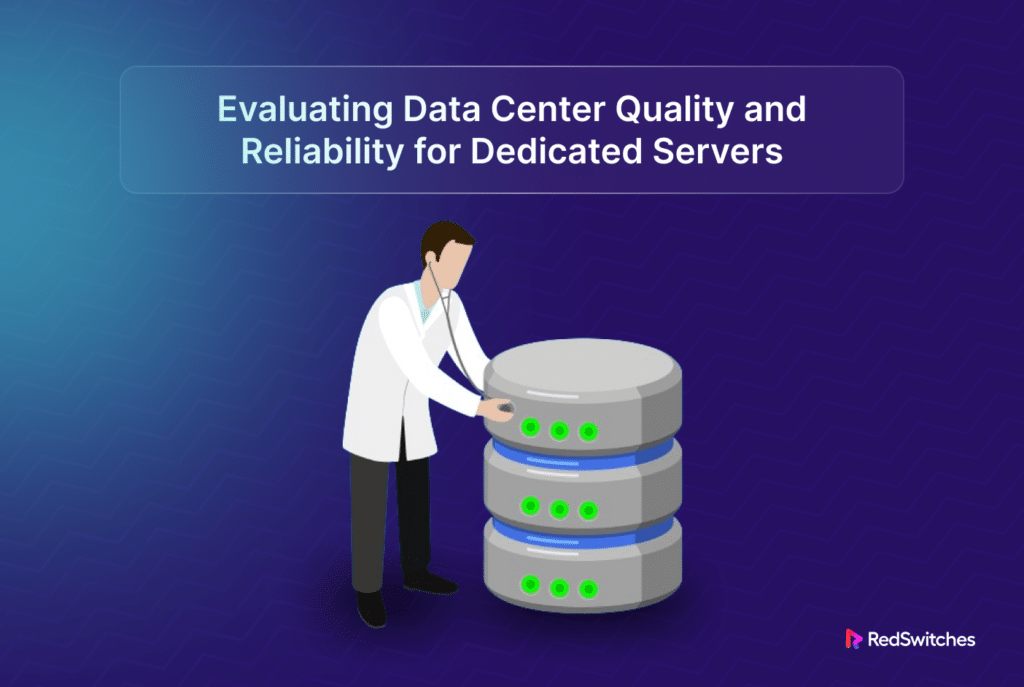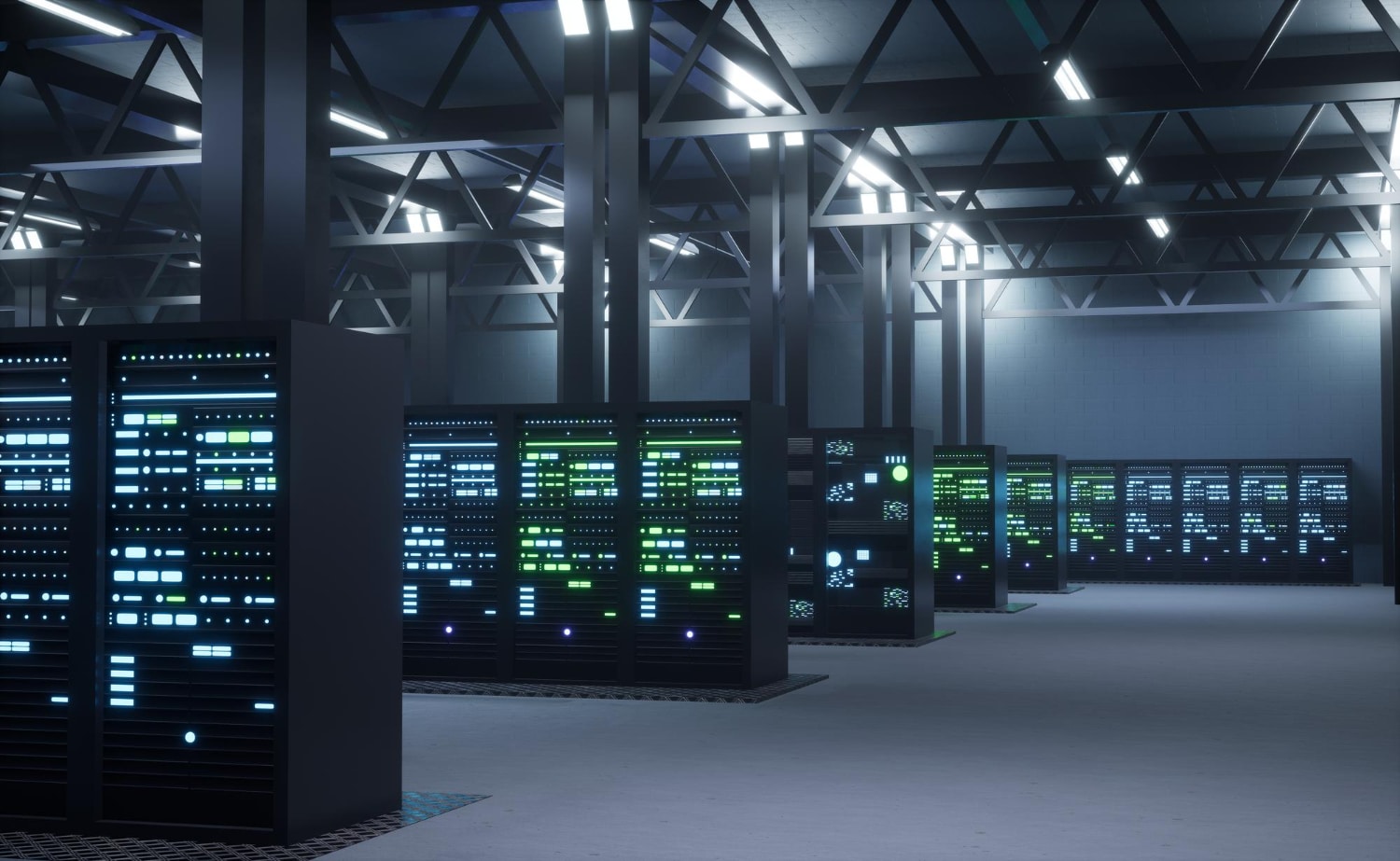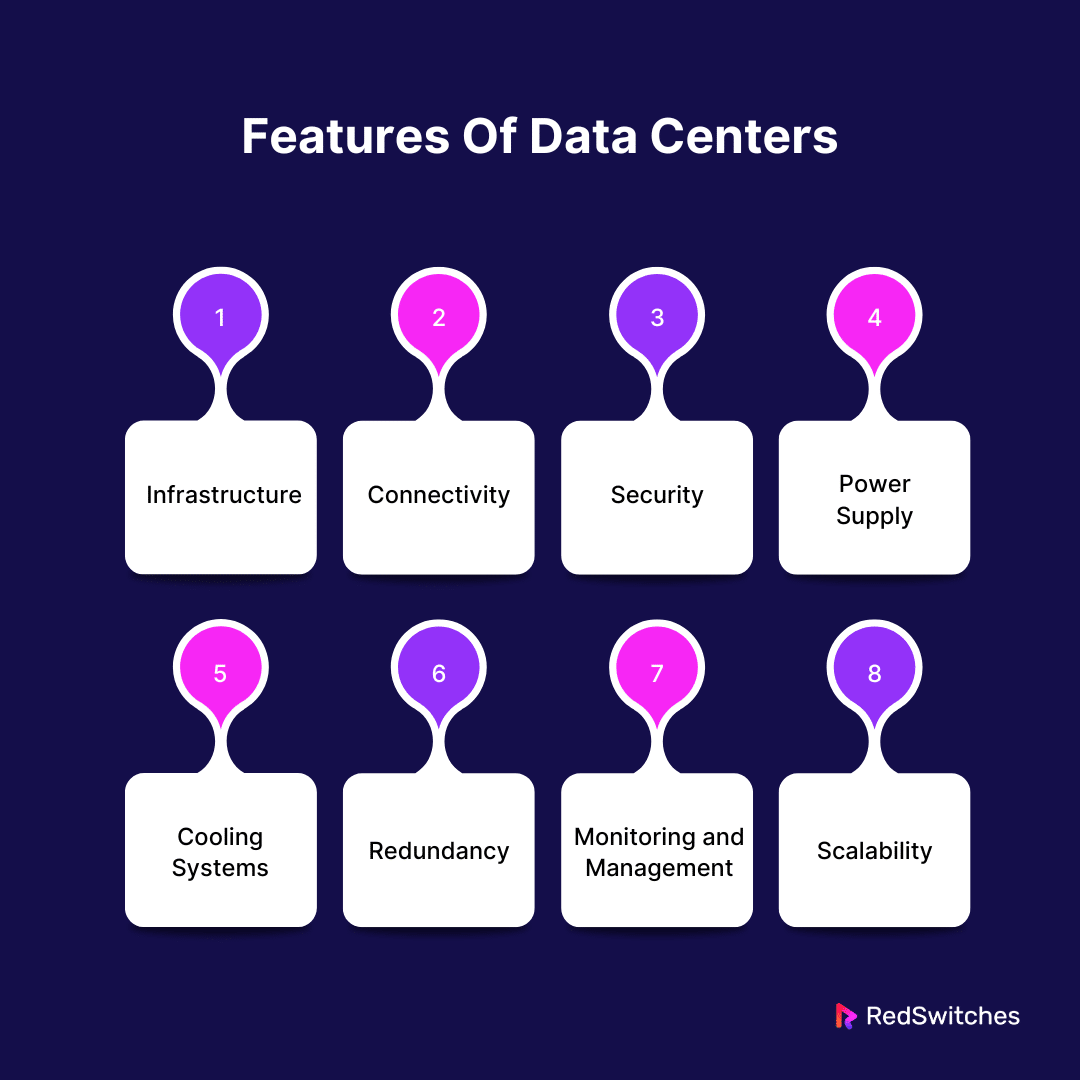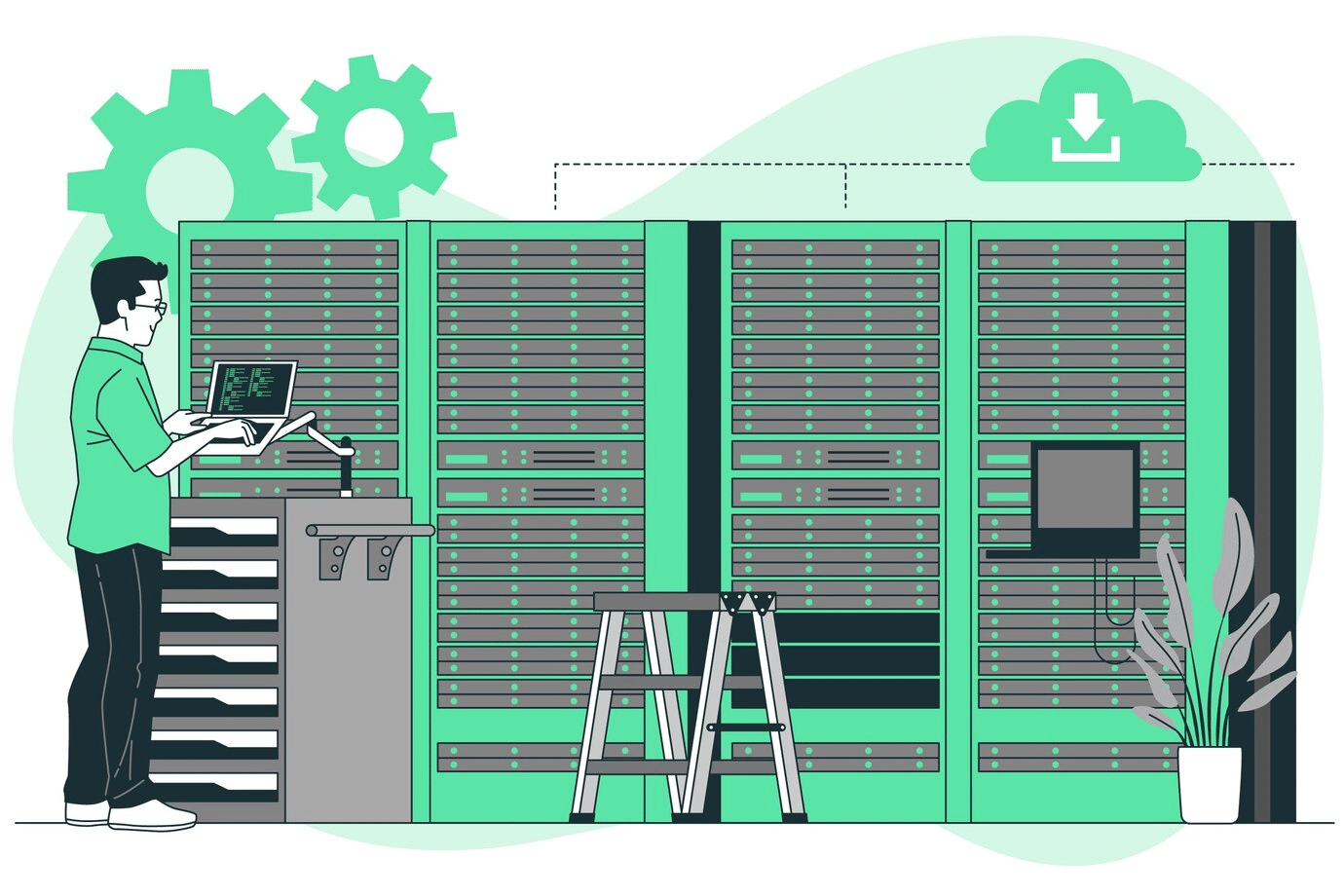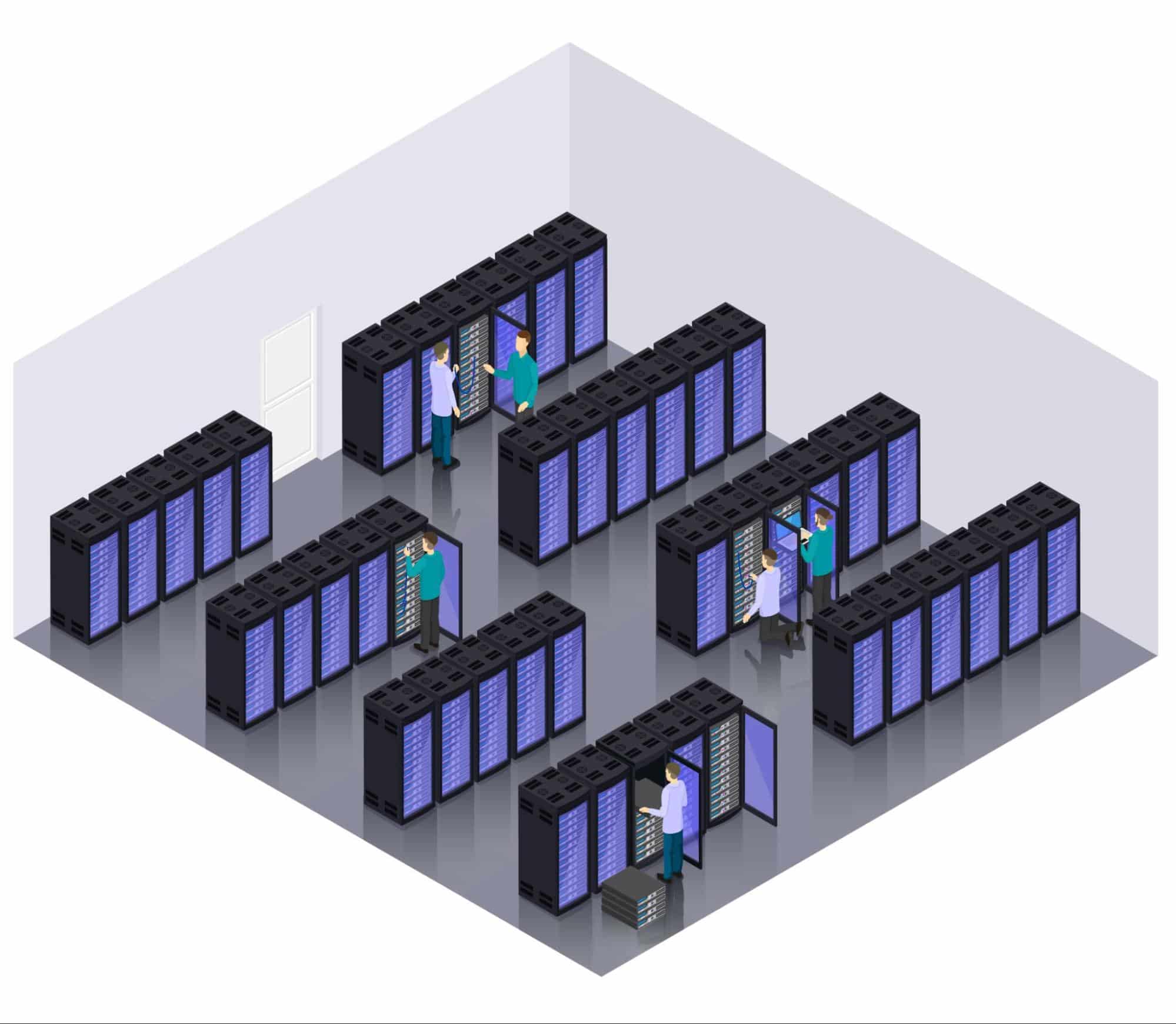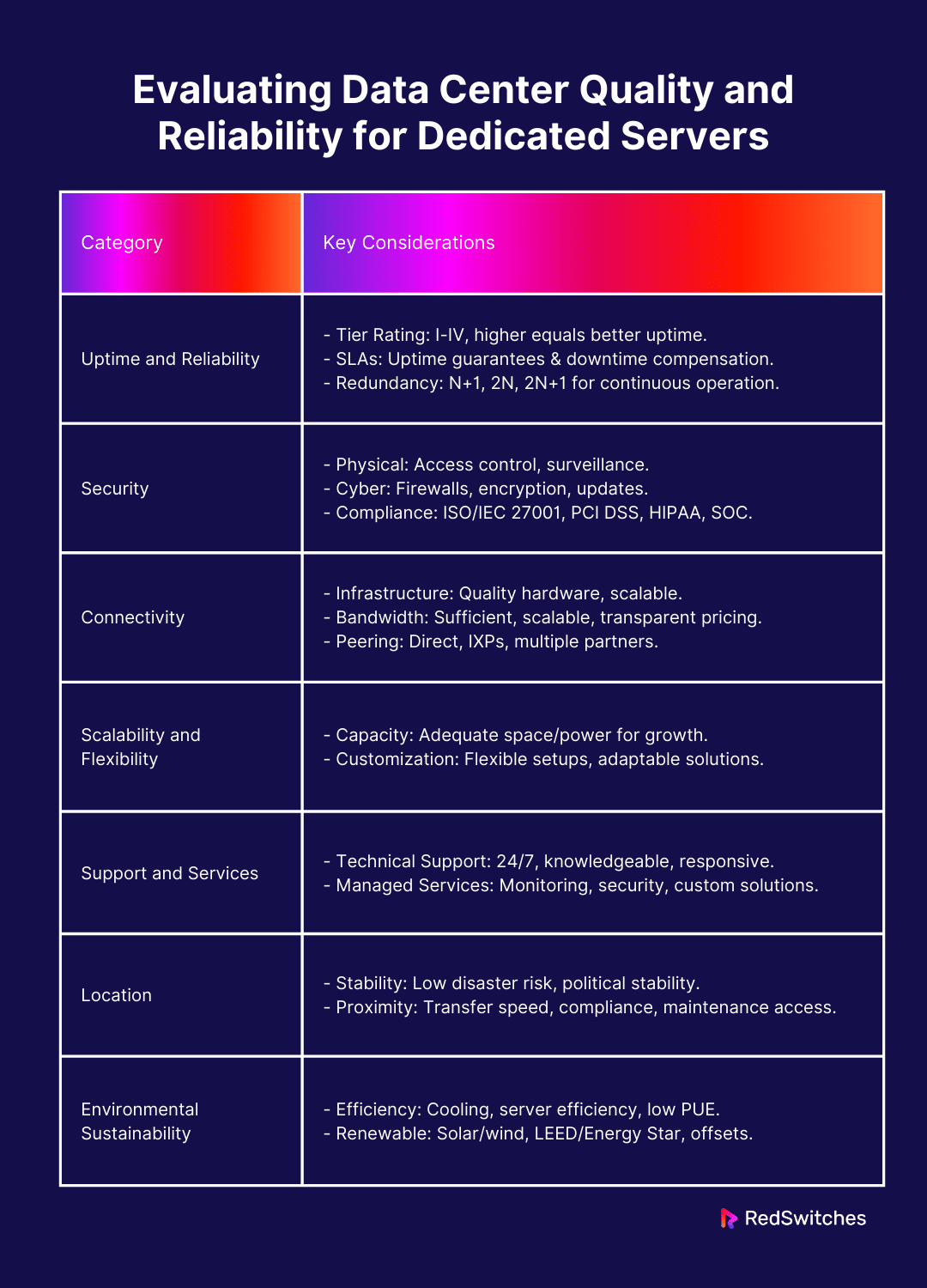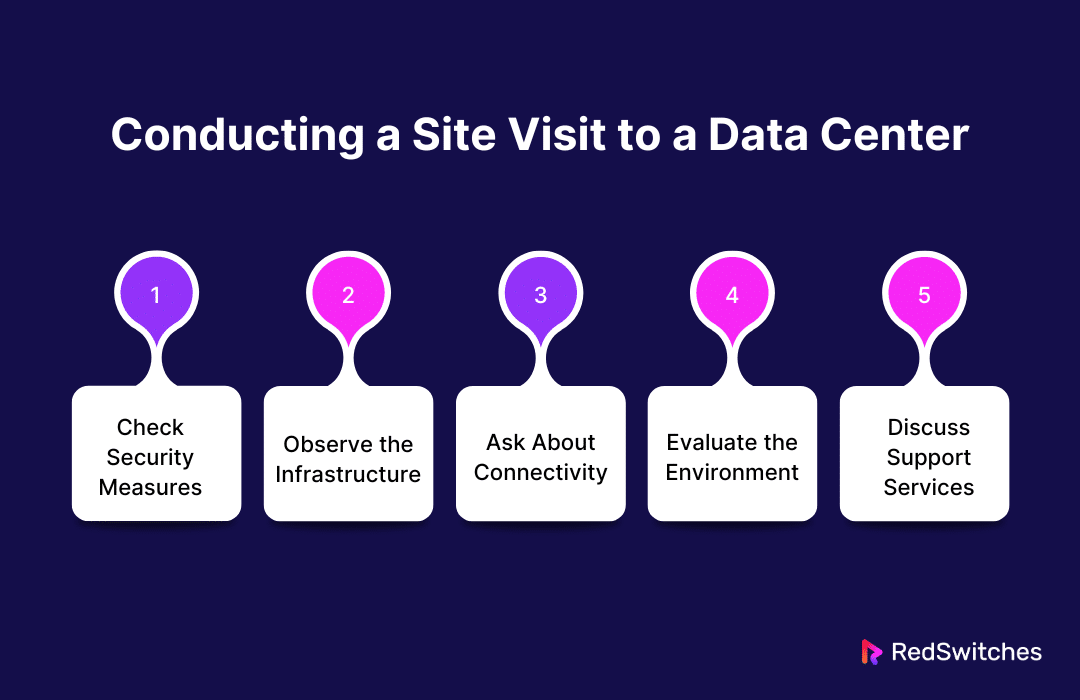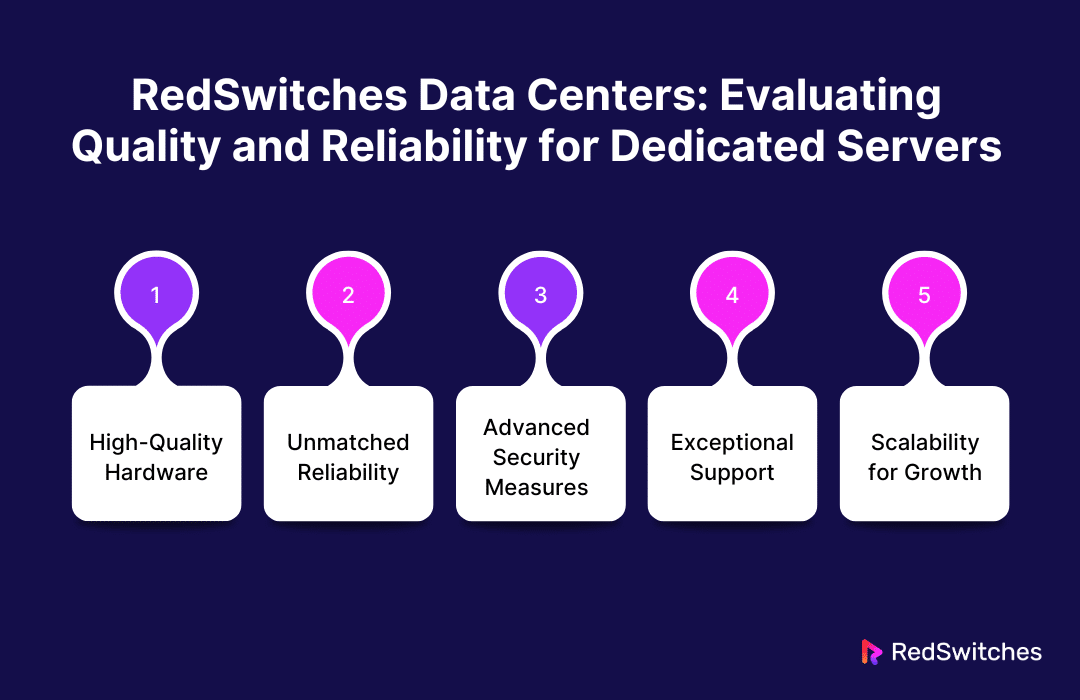Key Takeaways
- Dedicated server hosting offers exclusive resources for optimal website performance and security.
- The quality and reliability of a data center directly impact the performance and security of dedicated hosted servers.
- Data centers are categorized into four tiers, with Tier IV offering the highest level of uptime and reliability.
- Service Level Agreements (SLAs) are crucial for defining uptime guarantees and compensation for downtime.
- Redundancy in power supplies, network connections, and cooling systems ensures continuous operation of dedicated hosted servers.
- Physical security, cybersecurity measures, and compliance with industry standards are essential for protecting servers in a data center.
- A data center’s connectivity, network infrastructure, bandwidth availability, and peering arrangements affect server performance and reliability.
- Scalability and flexibility in a data center allow for growth and customization according to business needs.
- Location matters for data center selection due to geographic stability, proximity to users, and ease of access for maintenance.
- Conducting a site visit provides first-hand insight into a data center’s infrastructure, security, and operational efficiency.
In today’s digital age, the backbone of any online business is its dedicated server’s performance. These servers are the workhorses that store, manage, and process data 24/7. But not all data centers, where these servers live are the same. Quality and reliability vary widely, affecting everything from website speed to security. To ensure your online presence is strong, evaluating the quality and reliability of data centers for dedicated hosted servers is crucial.
Recent statistics show that the revenue in the Data Center market is projected to reach US$340.20bn in 2024. This growth reflects the increasing demand for data processing and storage. But with so many options, choosing the right data center for your needs can be overwhelming.
This article will guide you through the key factors, such as uptime, security measures, and customer support. By the end, you’ll understand how to evaluate a hosting service quality and reliability of data center for dedicated server, ensuring your online operations run smoothly.
Table of Contents
- Key Takeaways
- What Are Dedicated Servers?
- Features Of Dedicated Hosted Servers
- What Are Data Centers?
- Features Of Data Centers
- Evaluating Data Center Quality and Reliability for Dedicated Servers
- Conducting a Site Visit to a Data Center
- RedSwitches Data Centers: Evaluating Quality and Reliability for Dedicated Servers
- Conclusion
- FAQs
What Are Dedicated Servers?
Credits: Freepik
Dedicated hosted servers are powerful computers used exclusively by one client. Unlike shared servers, where resources are divided among multiple users, dedicated hosted servers give all their power and resources to one user. This setup is ideal for websites and applications requiring many resources or a high-security level.
Features Of Dedicated Hosted Servers
Here are some key features of dedicated hosted servers:
1. Exclusive Resources
One of the main features of dedicated hosted servers is that all their resources are exclusive to one user. This means you get all the server’s CPU, RAM, and storage space. Your website or application can run more smoothly because it doesn’t have to share resources with others. This is especially important for sites with high traffic or complex applications that need a lot of resources.
2. Improved Performance
Dedicated hosted servers perform better since you don’t share resources with other users. Your website can load faster, and your applications can run more efficiently. This is crucial for keeping your visitors happy and engaged. A fast-loading site can also help your search engine rankings.
3. Enhanced Security
Dedicated hosted servers provide enhanced security because you’re not sharing the space with other users who might introduce vulnerabilities. You have complete control over the server’s security settings. This means you can install your firewalls, run security scans, and take other steps to keep your data safe. For businesses handling sensitive information, this level of security is essential.
4. Greater Control
With a dedicated hosted server, you can control the server environment. You can choose the operating system and software you want to use. You can also make any necessary configurations to meet your specific needs. This flexibility is a significant advantage for businesses with unique requirements or those who need to install custom software.
5. Customizable Storage and Bandwidth
Dedicated hosted servers often come with customizable storage and bandwidth options. You can choose the amount of storage you need and select the bandwidth that matches your traffic requirements. You can scale your resources up or down as your needs change without switching to a different server.
6. Dedicated IP Address
Each dedicated hosted server has a unique IP address. This is important for several reasons. First, it helps improve your website’s reputation with search engines, as you’re not sharing an IP with other sites that might be spam or malicious. Second, a dedicated IP is required for certain applications and for setting up SSL certificates, which are crucial for secure transactions.
7. Reliable Uptime
Dedicated hosted servers can offer more reliable uptime than shared hosting. Providers can guarantee higher uptime because the server is dedicated to your use. This reliability is crucial for businesses where downtime can lead to lost revenue and damaged reputation.
8. Expert Support
Many dedicated hosted server providers offer expert support as part of their service. This means you can get help from professionals who understand the server’s technical details. They can assist with setup, maintenance, and troubleshooting, which is invaluable for businesses without IT departments.
Dedicated private servers offer a range of beneficial features for businesses with high traffic, demanding applications, or strict security requirements. From exclusive resources to enhanced security and reliable uptime, these servers provide a robust foundation for online operations.
What Are Data Centers?
Credits: Freepik
Servers Data centers are big buildings that store computers and other equipment needed to run websites and online services. These include servers, storage systems, and networking equipment. Data centers are vital for the digital operations of businesses and organizations. They store, manage, and disseminate data and ensure that websites, applications, and databases run efficiently and securely.
Features Of Data Centers
Here are some key features of data centers:
1. Infrastructure
Data centers have complex infrastructure designed to support heavy computing operations. This infrastructure includes physical servers, networking hardware, and storage solutions. It is built to handle large amounts of data processing and storage. The infrastructure is also scalable, which means it can grow to meet increasing data demands.
2. Connectivity
High-speed internet connections are crucial for data centers. They need to be well-connected to ensure fast data transfer. This is important for the performance of websites and online services. Data centers have multiple high-speed connections to the internet. They also have connections to different network service providers. This ensures that data can flow freely and quickly.
3. Security
Data centers have strong security measures in place. These include physical security, such as fences, guards, and surveillance cameras. They also have cybersecurity measures. These protect against online attacks. Data centers use firewalls, intrusion detection systems, and encryption. This keeps data safe from unauthorized access.
4. Power Supply
Data centers need much power to run their servers and cooling systems. They have backup power supplies to keep running during outages. This usually includes generators and battery backups. A reliable power supply is essential. It ensures that data centers can operate without interruption.
5. Cooling Systems
Servers generate a lot of heat. Data centers need effective cooling systems to prevent overheating. These systems use air conditioning and ventilation. Some use advanced cooling technologies. These can include liquid cooling or using outside air. Keeping the servers at the right temperature is crucial for their performance and longevity.
6. Redundancy
Data centers are designed with redundancy. This means having backup systems in place. If one system fails, another can take over. This applies to power supplies, cooling systems, and network connections. Redundancy ensures that data centers can keep running despite a failure.
7. Monitoring and Management
Data centers are monitored around the clock. This monitoring checks servers’ performance, network traffic, and security threats. It also includes environmental conditions, like temperature and humidity. Staff use management software to keep everything running smoothly. They can quickly address any issues that arise.
8. Scalability
Data centers are scalable. They can add more servers and storage as needed. This allows them to support the growing data needs of their clients. Scalability is important for businesses that are expanding. It ensures they can continue relying on their data center for support.
Data centers are essential for the digital world. They provide the infrastructure, security, and support needed for online operations. Data centers, from hosting websites to managing databases, are key in the digital economy. Their features, such as redundancy, security, and scalability, make them reliable and efficient.
Evaluating Data Center Quality and Reliability for Dedicated Servers
Credits: Freepik
Choosing the right data center for your dedicated private servers ensures your online operations run smoothly. The quality and reliability of a data center can greatly affect your website’s performance, security, and even search engine ranking. But with so many data centers, how do you pick the best one for your needs?
Evaluating a data center’s quality and reliability involves looking at several factors. These include its infrastructure, security measures, power supply, cooling systems, and customer support. It’s also important to consider the data center’s track record for uptime and its ability to grow with your business.
We aim to help you make an informed decision, ensuring your dedicated private servers are hosted in a facility that meets your performance, security, and reliability requirements. By choosing wisely, you can keep your online presence strong and efficient, no matter the challenges.
Uptime and Reliability
Regarding dedicated private servers, uptime and reliability are critical. These factors ensure that your website or application is always available to users. You must consider several key aspects to evaluate a data center’s quality and reliability.
Tier Rating
Data centers are categorized into four tiers based on their infrastructure and ability to stay operational. The tier system, developed by the Uptime Institute, ranges from Tier I to Tier IV.
- Tier I centers are the most basic. They have a single path for power and cooling and no backup components. They are expected to have an uptime of 99.671%.
- Tier II centers add redundant components, offering a bit more reliability with an uptime of 99.741%.
- Tier III centers have multiple paths for power and cooling, but only one is active at a time. They also include redundancy for critical components and aim for 99.982% uptime.
- Tier IV centers are the most robust, with fully redundant subsystems and a fault-tolerant infrastructure. They guarantee 99.995% uptime.
Choosing a data center with a higher tier rating for dedicated private servers means better uptime and reliability.
Service Level Agreements (SLAs)
Servers SLAs are contracts between the data center provider and the customer. They outline the expected level of service, including uptime guarantees. SLAs are crucial because they provide a clear expectation of service reliability and outline compensation if the data center fails to meet these standards.
When evaluating a data center, review the SLA carefully. Look for uptime guarantees and how they match your needs. Also, check the compensation offered for downtime. A strong SLA demonstrates the provider’s confidence in their data center’s reliability.
Redundancy
Redundancy is about having backups for every critical component in the data center. This includes power supplies, network connections, cooling systems, and hardware.
Redundancy ensures that if one component fails, another is ready to take its place without disrupting the service.
There are different levels of redundancy:
- N+1 redundancy means there is one backup for every component.
- 2N redundancy means there is a full second set of components.
- 2N+1 redundancy goes further, offering an entire second set of components plus one additional backup.
Look for data centers with high redundancy levels for dedicated private servers. This ensures that your server remains operational even if some components fail.
Evaluating a data center’s quality and reliability for dedicated private servers involves looking at tier ratings, SLAs, and redundancy. A higher tier rating indicates a more reliable infrastructure.
A solid SLA assures service quality and compensation for downtime. High levels of redundancy ensure continuous operation despite component failures. Considering these factors, you can choose a data center to keep your servers running smoothly and efficiently.
Security
Credits: Freepik
Security is a top priority when choosing a data center to host dedicated private servers. It involves more than safeguarding data; it’s about protecting your online assets from physical and cyber threats. Let’s explore the crucial aspects of security you need to consider.
Physical Security
Physical security ensures unauthorized people cannot physically access the data center’s facilities. This is vital for preventing theft, vandalism, or tampering with the hardware.
- Access Control: Good data centers control who gets in and out. They use security measures like biometric scanners, key cards, and PIN codes. Only authorized personnel should have access to the server areas.
- Surveillance: Video surveillance cameras should monitor all areas inside and outside. This helps in detecting and responding to unauthorized activities quickly.
- Security Personnel: Trained security guards add another layer of protection. They can respond to incidents and ensure only authorized individuals access sensitive areas.
- Environmental Controls: Besides controlling access, it’s important to protect servers from fire, flooding, and other environmental risks. Look for data centers with fire suppression and water detection systems.
Cybersecurity
Cybersecurity measures protect servers and data from online threats. These include hacking, malware, and DDoS attacks.
- Firewalls: Firewalls are a barrier between your dedicated private server and the Internet. They filter incoming and outgoing traffic based on security rules, which helps block malicious traffic.
- Intrusion Detection and Prevention Systems (IDPS): These systems monitor network and system activities for malicious activities or policy violations. If detected, they can automatically block the threats.
- Encryption: Encrypting data protects it during transmission and when stored. Look for data centers with strong encryption standards to safeguard sensitive information.
- Regular Updates and Patch Management: Keeping software updated is crucial for security. Data centers should regularly update and patch their systems to protect against known vulnerabilities.
Compliance
Compliance with industry standards and regulations ensures data centers meet specific security and privacy requirements. This is especially important for businesses in regulated industries like finance, healthcare, and e-commerce.
- ISO/IEC 27001: This is a global standard for information security management. Data centers that are ISO 27001 certified have a systematic approach to managing sensitive company information so that it remains secure.
- PCI DSS: The Payment Card Industry Data Security Standard applies to entities that handle credit card information. Compliance ensures that credit card data is processed and stored securely.
- HIPAA: The Health Insurance Portability and Accountability Act sets the standard for protecting sensitive patient data in the healthcare industry. Data centers hosting medical information should be HIPAA compliant.
- SOC 1 and SOC 2: These are reports on controls at a service organization relevant to security, availability, processing integrity, confidentiality, and privacy.
When evaluating a data center for hosting your servers, consider these three pillars of security: physical security, cybersecurity, and compliance. Ensure that the facility has robust measures to protect against physical and digital threats. Additionally, compliance with relevant standards and regulations is essential for maintaining trust and meeting legal obligations. By prioritizing security, you can safeguard your online assets and ensure the reliability of your digital operations.
Also Read The Evolution of Dedicated Servers in the Hosting Industry
Connectivity
Credits: Freepik
For dedicated private servers, connectivity is crucial. It affects how quickly and reliably data moves between your servers and the rest of the world. Let’s consider the important aspects of connectivity when choosing a data center.
Network Infrastructure
Network infrastructure is the backbone of a data center’s connectivity. It includes the hardware and software that enable communication between servers and the internet.
- High-Quality Hardware: Look for data centers that use reliable networking equipment. This includes routers, switches, and firewalls from reputable manufacturers. Quality hardware reduces the risk of downtime and supports high-speed data transmission.
- Scalable Network Design: The network should be designed to grow. As your needs increase, the data center should be able to expand its network capacity without disrupting your service.
- Redundant Network Connections: Redundancy in the network ensures that if one connection fails, others can take over. This minimizes downtime and keeps your data flowing.
- Low Latency: Latency refers to the delay before a data transfer begins following an instruction for its transfer. Low latency is essential for fast response times. Data centers should have a network designed to minimize delays.
Bandwidth Availability
Bandwidth is the amount of data transmitted in a specific time. It’s like the highway your data travels on. The wider the highway, the more data can move at once.
- High Bandwidth Capacity: Ensure the data center offers enough bandwidth to meet your demands. This is especially important for sites with high traffic volumes or data-intensive applications.
- Scalable Options: Your bandwidth requirements might increase as your business grows. The data center should allow you to upgrade your bandwidth as needed easily.
- Transparent Pricing: Some data centers charge extra fees for bandwidth usage exceeding a certain limit. Look for clear, transparent pricing models for bandwidth. This helps you avoid unexpected costs.
Peering Arrangements
Peering arrangements are agreements between networks to exchange traffic directly. These can significantly impact the speed and reliability of your connectivity.
- Direct Peering: Direct peering means the data center’s network exchanges traffic directly with other networks. This can reduce latency because data takes a more direct route to its destination.
- Internet Exchange Points (IXPs): IXPs are physical infrastructure through which different networks exchange traffic. Data centers connected to well-established IXPs can offer faster and more reliable connectivity.
- Multiple Peering Partners: The more peering arrangements a data center has, the better. This ensures your data can travel through the most efficient routes, improving speed and reducing potential points of failure.
Connectivity is vital to data center operations, especially for dedicated private servers. High-quality network infrastructure ensures reliable and fast data transmission. Adequate bandwidth supports your current and future data needs.
Meanwhile, good peering arrangements enhance the speed and reliability of your connections. Consider these connectivity aspects when evaluating a data center to ensure they meet your requirements.
This ensures your servers can effectively support your online presence, providing a seamless experience for your users.
Scalability and Flexibility
Credits: Freepik
Scalability and flexibility are key when your online presence grows. Your dedicated private servers need a data center that can grow with you. Let’s examine how space, power capacity, and customization play into this.
Space and Power Capacity
- Space for Growth: Your business might start small but can grow quickly. A data center should have enough space to accommodate more servers or larger equipment as your needs expand. Think of it as having a big enough garden to plant more trees as your garden grows.
- Power to Run: Servers need power. As you add more servers, you’ll need more power. A scalable data center has the infrastructure to provide this additional power without hitches.
Customization
- Your Needs, Your Setup: Every business has unique needs. A flexible data center allows you to customize your setup. This can include specific hardware configurations, networking setups, or security measures.
Adaptable Solutions
As your business evolves, your technology needs will, too. A good data center offers adaptable solutions. This means you can upgrade or change your services as needed. For instance, if you started with a small plot and basic gardening tools but now need more space and advanced equipment, the data center should be able to provide these without a complete overhaul.
When choosing a data center for your dedicated private servers, look for one that offers scalability and flexibility. You want a partner that can accommodate your growth in space and power needs and allows you to customize your setup. This ensures that your data center can keep pace as your business grows and changes, providing the support you need for a thriving online presence.
Support and Services
Credits: Freepik
Regarding dedicated private servers, having robust support and services from your data center is like having a reliable pit crew for a race car. Let’s dive into the importance of technical support and managed services.
Technical Support
- Always Available: Your online operations don’t take breaks, and neither should your support. Look for data centers that offer 24/7 technical support. This means help is always just a call or email away, whether it’s noon or midnight.
- Knowledgeable Experts: The support team should be available and knowledgeable. They should understand the ins and outs of the data center’s infrastructure and services.
- Responsive Service: When issues arise, time is of the essence. A good support team is not just available and knowledgeable; they’re also quick to respond. Fast response times can mean a minor hiccup and a major disruption.
Managed Services
- Beyond the Basics: Managed services go beyond basic hosting. They can include system monitoring, backup and recovery, security services, and more.
- Custom Solutions: Just as every race car is set up for the track it’s racing on, your dedicated private servers might need specific configurations. Managed services should offer custom solutions tailored to your business needs. This can include custom software installations, specific security protocols, or performance tuning.
- Proactive Management: The best-managed services aren’t just reactive; they’re proactive. This means monitoring your systems to prevent issues before they happen.
Strong support and comprehensive managed services are crucial for the smooth operation of your dedicated private servers. Technical support should always be available, knowledgeable, and responsive.
Managed services should offer beyond the basics, provide custom solutions, and proactively manage your systems. Together, these elements ensure that your online operations run smoothly, allowing you to focus on growing your business while your “pit crew” handles the technical details.
Location
Credits: Freepik
The location of a data center is like the foundation of a house. It needs to be stable and in the right spot. Let’s explore why geographic stability and proximity matter for dedicated private servers.
Geographic Stability
- Safe from Natural Disasters: Some areas are prone to earthquakes, floods, or hurricanes. A data center in such a location might face risks. Look for data centers in areas with a low risk of natural disasters.
- Reliable Infrastructure: The area should have reliable infrastructure. This includes power grids, water supply, and telecommunications networks. A stable geographic location ensures these essentials are consistently available. The data center must keep running smoothly like a house needs a steady water and electricity supply.
- Political Stability: The region’s political climate should be stable besides natural factors. Political unrest can affect the reliability of power, the internet, and the data center’s physical security. Choosing a data center in a politically stable country is like living in a peaceful neighborhood.
Proximity
- Speed of Data Transfer: The closer your dedicated private servers are to your users, the faster the data can travel. This reduces latency, which is the delay before a data transfer begins following an instruction for its transfer. Low latency is crucial for applications requiring real-time interactions.
- Legal and Regulatory Considerations: Different countries and regions have different laws and regulations about data. Hosting your servers in a location that aligns with your legal and regulatory needs is important. It’s similar to choosing a location for your house where the rules fit your lifestyle.
- Access for Maintenance and Upgrades: Proximity matters if you or your team need physical server access for maintenance or upgrades. A data center that’s too far away can make these tasks challenging.
Consider the location’s geographic stability and proximity when choosing a data center for your servers. A stable location minimizes risks from natural and political issues. Proximity enhances the speed of data transfer, aligns with legal requirements, and facilitates easy access for maintenance. Together, these factors ensure that your servers have a solid foundation to support your online presence effectively.
Also Read When to Upgrade to a Dedicated Server for Your Business
Environmental Sustainability
Credits: Freepik
As the digital world grows, so does its environmental impact. Data centers consume a lot of energy, which makes environmental sustainability an important consideration. Discuss the significance of energy efficiency and renewable energy in data centers.
Energy Efficiency
- Cooling Systems: Data centers generate a lot of heat. Efficient cooling systems use less energy to keep servers at the right temperature. Innovations like liquid cooling or using outside air can significantly reduce energy use. It’s similar to using energy-efficient air conditioning in your home.
- Server Efficiency: Modern servers are designed to do more work with less power. Data centers focusing on environmental sustainability opt for these high-efficiency servers. It’s like choosing an energy-saving refrigerator over an older model with more electricity.
- Power Usage Effectiveness (PUE): PUE measures how efficiently a data center uses energy. It compares the total energy the facility uses to the energy the IT equipment uses. A lower PUE means more energy efficiency. It’s like measuring how much of your home’s energy goes to heating, cooling, or lighting versus being wasted.
Renewable Energy
- Solar and Wind Power: Some data centers use renewable energy sources like solar panels or wind turbines. This reduces reliance on fossil fuels and lowers carbon emissions. It’s akin to installing solar panels on your roof to power your home.
- Green Certifications: Look for data centers with certifications like LEED (Leadership in Energy and Environmental Design) or Energy Star. These certifications indicate that the facility meets strict environmental standards. It’s like choosing a car with a high fuel efficiency rating.
- Carbon Offsetting: Even when direct use of renewable energy isn’t possible, some data centers invest in carbon offset projects. These projects might involve planting trees or investing in renewable energy elsewhere. It’s similar to planting a garden to absorb more CO2 if your car isn’t electric.
When evaluating a data center for your dedicated private servers, consider its approach to environmental sustainability. Energy efficiency reduces the environmental impact and can also lower operating costs.
Renewable energy sources further decrease the carbon footprint. Together, these practices show a data center’s commitment to protecting the planet while powering the digital world with servers. Choosing a sustainable data center ensures a home for your servers and contributes to a healthier environment.
Conducting a Site Visit to a Data Center
Conducting a site visit to a data center is like inspecting a house before you buy it. It helps you see if the facility meets your needs for hosting dedicated private servers. Here are key points to focus on during your visit:
Check Security Measures
See the security setup for yourself. Look for cameras, guards, and access control systems. Make sure the data center takes physical security seriously. It’s important for protecting your servers.
Observe the Infrastructure
Pay attention to how the data center is built. Look at the servers, cooling systems, and power supplies. Everything should look well-maintained and up-to-date. This shows the data center can support your technology needs.
Ask About Connectivity
Find out what kind of internet connections the data center uses. Ask about their backup plans if the main connection fails. Good connectivity is crucial for keeping your servers online.
Evaluate the Environment
Notice if the facility is clean and well-organized. Check the temperature and listen for loud noises. A clean, quiet, cool data center is better for your servers.
Discuss Support Services
Talk to the staff. Ask them how they handle technical issues and what kind of customer support they offer. Friendly and knowledgeable staff are good signs.
Visiting the site gives you a real feel for the data center. It’s crucial to choose the right place to host your servers. This visit can tell you a lot about their quality and reliability.
RedSwitches Data Centers: Evaluating Quality and Reliability for Dedicated Servers
At RedSwitches, we pride ourselves on the quality and reliability of our dedicated bare metal servers. Our data centers are at the heart of our operation. They ensure your website and applications run smoothly, 24/7. Let’s delve into why our data centers stand out.
High-Quality Hardware
We invest in top-notch hardware. This means faster and more reliable performance for your dedicated private server. Our commitment to quality hardware ensures that your online operations are efficient and dependable.
Unmatched Reliability
Our data centers are designed with redundancy in mind. This ensures that even if one component fails, another immediately takes its place. This setup keeps your services running without interruption. Our uptime record speaks for itself. We work hard to keep your websites and applications online all the time.
Advanced Security Measures
Security is our top priority. Our data centers are equipped with the latest in security technology. From physical barriers to cyber defenses, we protect your data from all angles. Your peace of mind is important to us. We make sure your information stays safe.
Exceptional Support
Our expert team is here for you around the clock. We monitor our data centers closely to catch and fix any issues quickly. We’re just a message away if you have questions or need help. Our support team is knowledgeable and ready to assist.
Scalability for Growth
We understand that your needs may change. That’s why our data centers are built to grow with you. Whether you need more storage or more power, we can adjust. This flexibility allows your online presence to expand seamlessly.
At RedSwitches, we offer reliable dedicated servers backed by data centers that are reliable, secure, and flexible to your needs. Our commitment to quality hardware, round-the-clock support, and advanced security measures ensures that your online operations are in good hands. Trust us to keep your site up and running, no matter what.
Conclusion
In summary, choosing the right data center for hosting dedicated private servers is essential for any online business. It impacts the performance, security, and reliability of your online presence. You can select a data center that meets your needs by evaluating uptime, security, connectivity, scalability, environmental controls, and customer support.
This article has helped you understand what to look for in a data center by guiding you through these important characteristics. Considering these points, you can find a facility that supports your business’s growth and keeps your operations running smoothly. Remember, the quality and reliability of your chosen data center are foundational to your success in the digital world.
Ready to elevate your online presence with unmatched reliability and performance? Choose RedSwitches for your dedicated private server needs. With top-tier security, seamless connectivity, and scalable solutions, we’re committed to powering your success. Don’t compromise on quality and reliability. Join RedSwitches today and experience the difference excellence makes!
FAQs
Q. What is a dedicated database server?
A dedicated database server is solely used for storing and managing databases. It’s dedicated to running database software, ensuring optimal performance and security for database operations without sharing resources with other services.
Q. What is the difference between colocation and a dedicated server?
Colocation involves renting space in a data center to house your server hardware, whereas with a dedicated private server, you rent a server owned and maintained by the hosting provider. Colocation gives you physical control over your hardware, while a server offers ease of use and management by the provider.
Q. What is the difference between a cloud server and a dedicated server?
A cloud server is a virtual server running in a cloud computing environment where resources can be scaled on demand. A dedicated private server is a physical server with fixed resources, providing exclusive use of its resources. Cloud servers offer flexibility and scalability, while servers offer more consistent performance and control.
Q. What is the difference between VM and dedicated server?
A Virtual Machine (VM) is a software-based emulation of a computer system that runs on a physical host server, allowing multiple VMs to operate on a single physical server. A dedicated private server is a physical server entirely dedicated to one user or task, offering all its resources without sharing.
Q. What is a dedicated server?
A dedicated hosting server is a type of server that is exclusively leased to a single user or organization. It is not shared with any other users or clients and provides full control over the server resources.
Q. Why choose dedicated server hosting?
Dedicated private server hosting offers high performance, security, and customization options compared to shared hosting. It is ideal for websites with high traffic or specific resource requirements.
Q. What is a bare metal server?
A bare metal server is a physical server that is dedicated to a single tenant. It provides direct access to the underlying hardware without any virtualization layer, offering optimal performance and control.
Q. How does a dedicated hosting service differ from shared hosting?
Dedicated hosting service provides a single user with exclusive access to a server, whereas shared hosting involves multiple users sharing resources on the same server. Dedicated hosting offers better performance, security, and customization options.
Q. What are the advantages of private cloud hosting?
Private cloud hosting offers dedicated resources in a secure and isolated environment. It provides scalability, flexibility, and control over server resources, making it suitable for organizations with specific hosting needs.
Q. How to choose the best dedicated hosting solution for your business?
When selecting a dedicated hosting solution, consider factors such as performance requirements, scalability, security features, customer support, and pricing. Evaluate different hosting providers and their server offers to find the most suitable option.
Q. Is a dedicated hosted server faster than VPS?
Generally, a dedicated private server can be faster than a VPS (Virtual Private Server) because it provides all its hardware resources exclusively to one user, eliminating resource contention with other users. However, the performance can also depend on the specific hardware and configuration of the server.
